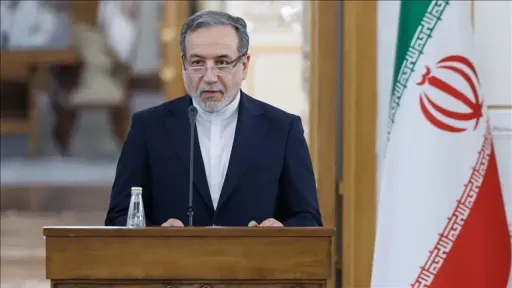Turkish Foreign Minister Mevlut Cavusoglu will travel to Baghdad on Sunday in his first official visit to the country following a non-binding independence referendum held by the semi-autonomous Kurdish Regional Government (KRG) in September.
The KRG, which declared autonomy in 2003 in northern Iraq, held what was widely seen as an illegal referendum, to break up with Iraq in September 25. The vote took place despite warnings from the central government in Baghdad, as well as neighbouring countries.
In the aftermath of the voting, the results were rejected by Baghdad, and the KRG lost the territories it had gained after its fight against Daesh in 2014, returning it almost to its 2003 borders after a military operation by the Iraqi army.
Moreover, their relations have been strained with Turkey and Iran.
“[KRG President Masoud] Barzani is the one who is responsible for all this,” Cavusoglu told reporters on Wednesday.
Turkey hopes to resolve the issue, according to Cavusoglu who said that the regional government had already requested Ankara to mediate between Baghdad and Erbil.
“The announcement by Erbil that they would comply with the Iraqi constitution was a positive step, but a clear reconciliation must be reached between the parties,” he added.
Turkey’s relations with Baghdad
Ankara and Baghdad had exchanged harsh words over Turkey’s military deployment in the northern Iraqi town of Bashiqa near Mosul, at the invitation of Baghdad.
Iraqi Prime Minister Haider al Abadi, who made the invitation to train the Iraqi forces in their fight against Daesh during his Ankara visit in December 2014, later called on the troops to withdraw.
Since the end of 2015 when the Bashiqa crisis occured, tensions between the two countries had increased. Baghdad accused Ankara of intervening in Iraq's domestic issues, while Ankara blamed the Baghdad government on discriminating against the country's Sunni population. But a common threat forced them to co-operate.
The KRG’s referendum led both sides to act together to protect Iraq’s territorial integrity, as Turkey was also concerned that its Kurdish population in its southeast could be affected.
Turkey supported the Baghdad government and suspended all flights to and from the airports in KRG territories. The control of the airports were later taken over by the central government.
Co-operation between Ankara and Bagdad went a step further, and they held joint military drills along Turkey’s border with the KRG. The Bashiqa dispute was no longer a priority in their relationship.
On October 25, Iraqi Prime Minister Haidar al Abadi visited Ankara, in a bid to further improve co-operation between the two neighboring countries. An agreement was made to rebuild the gas pipeline from Iraq to Turkey, and to open a new border gate which will be controlled by the central government, in addition to Habur Border Gate, which is controlled by the KRG.
Turkey’s relations with Erbil
Turkey has had strong economic ties with the KRG, with about 1,300 Turkish companies operating in the semi-autonomous region.
Data by the Turkish Statistical Institute (TUIK) showed that Turkey’s exports to Iraq reached $11.9 billion in 2013. However, the volatile security situation in the country caused a decrease to $8 billion in 2016, TUIK added.
The latest referendum crisis hit the economic activities even more, not only because of Turkey putting a limited trade barrier with the KRG, but because the region’s already bad economy worsened after it lost control of oil-rich areas in and around Kirkuk.
After the referendum, Iran closed its border with KRG-controlled territory, while Turkey kept its borders open to trade and humanitarian aid.
With a change of events four months after the referendum, on June 4, KRG Prime Minister Nachirwan Barzani said that they were ready to have a dialogue with the Baghdad government to come up with solutions to the problems. In a statement after the cabinet meeting on the same day, he also underlined their desire to meet with Turkish authorities and resume good relations.
Controlling Kirkuk has always been an ambition for the central government in Baghdad, due to its rich oil reserves—which makes up around 11 percent of the country’s total reserves.
The city of Kirkuk remains inside within disputed areas. According to Article 140 of the Iraqi constitution, a referendum should have been held at the end of 2007 to decide the status of these areas, but that did not happen.
The central government lost no time in taking control of Kirkuk after the referendum. Losing the oil-rich area devastated the KRG’s economy, which was mostly dependent on income from oil and border crossings.
Public servants in the KRG have endured the greatest challenges following the non-binding independence referendum, as the Iraqi central government, as well as Turkey and Iran, put economic pressure on the semi-autonomous region.
Last month, thousands of people who were fed up with the economic situation in the KRG took to the streets, demanding the payment of their salaries.
At least five people were killed and several others injured in the anti-government protests that turned violent after security forces moved in to disperse the crowds.
In light of recent developments, Cavusoglu’s Baghdad visit might play a significant role in solving the crisis, which has affected all parties involved.























